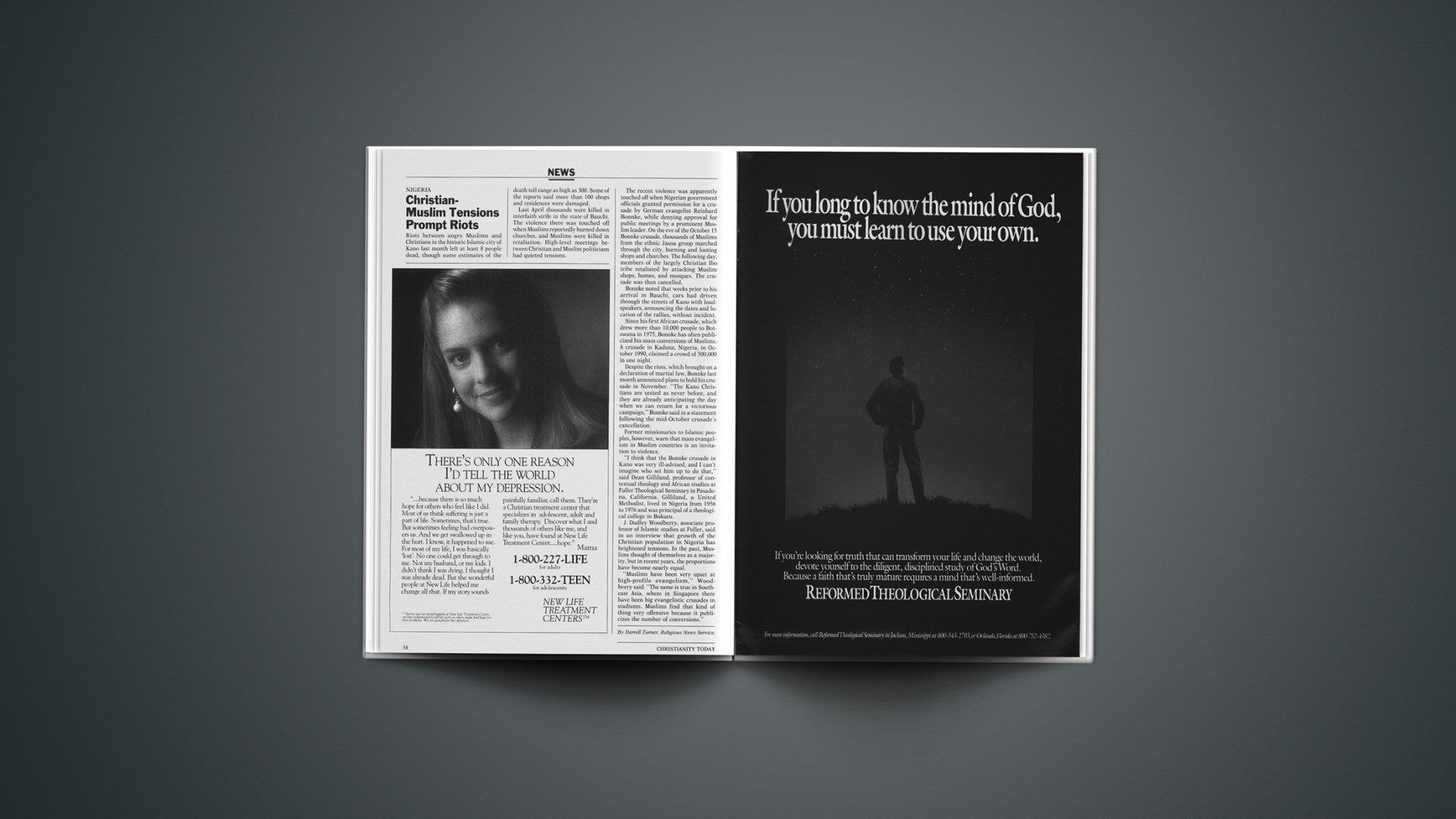Riots between angry Muslims and Christians in the historic Islamic city of Kano last month left at least 8 people dead, though some estimates of the death toll range as high as 300. Some of the reports said more than 100 shops and residences were damaged.
Last April thousands were killed in interfaith strife in the state of Bauchi. The violence there was touched off when Muslims reportedly burned down churches, and Muslims were killed in retaliation. High-level meetings between Christian and Muslim politicians had quieted tensions.
The recent violence was apparently touched off when Nigerian government officials granted permission for a crusade by German evangelist Reinhard Bonnke, while denying approval for public meetings by a prominent Muslim leader. On the eve of the October 15 Bonnke crusade, thousands of Muslims from the ethnic Jausa group marched through the city, burning and looting shops and churches. The following day, members of the largely Christian Ibo tribe retaliated by attacking Muslim shops, homes, and mosques. The crusade was then cancelled.
Bonnke noted that weeks prior to his arrival in Bauchi, cars had driven through the streets of Kano with loudspeakers, announcing the dates and location of the rallies, without incident.
Since his first African crusade, which drew more than 10,000 people to Botswana in 1975, Bonnke has often publicized his mass conversions of Muslims. A crusade in Kaduna, Nigeria, in October 1990, claimed a crowd of 500,000 in one night.
Despite the riots, which brought on a declaration of martial law, Bonnke last month announced plans to hold his crusade in November. “The Kano Christians are united as never before, and they are already anticipating the day when we can return for a victorious campaign,” Bonnke said in a statement following the mid-October crusade’s cancellation.
Former missionaries to Islamic peoples, however, warn that mass evangelism in Muslim countries is an invitation to violence.
“I think that the Bonnke crusade in Kano was very ill-advised, and I can’t imagine who set him up to do that,” said Dean Gilliland, professor of contextual theology and African studies at Fuller Theological Seminary in Pasadena, California. Gilliland, a United Methodist, lived in Nigeria from 1956 to 1976 and was principal of a theological college in Bukuru.
J. Dudley Woodberry, associate professor of Islamic studies at Fuller, said in an interview that growth of the Christian population in Nigeria has heightened tensions. In the past, Muslims thought of themselves as a majority, but in recent years, the proportions have become nearly equal.
“Muslims have been very upset at high-profile evangelism,” Woodberry said. “The same is true in Southeast Asia, where in Singapore there have been big evangelistic crusades in stadiums. Muslims find that kind of thing very offensive because it publicizes the number of conversions.”
By Darrell Turner, Religious News Service.










